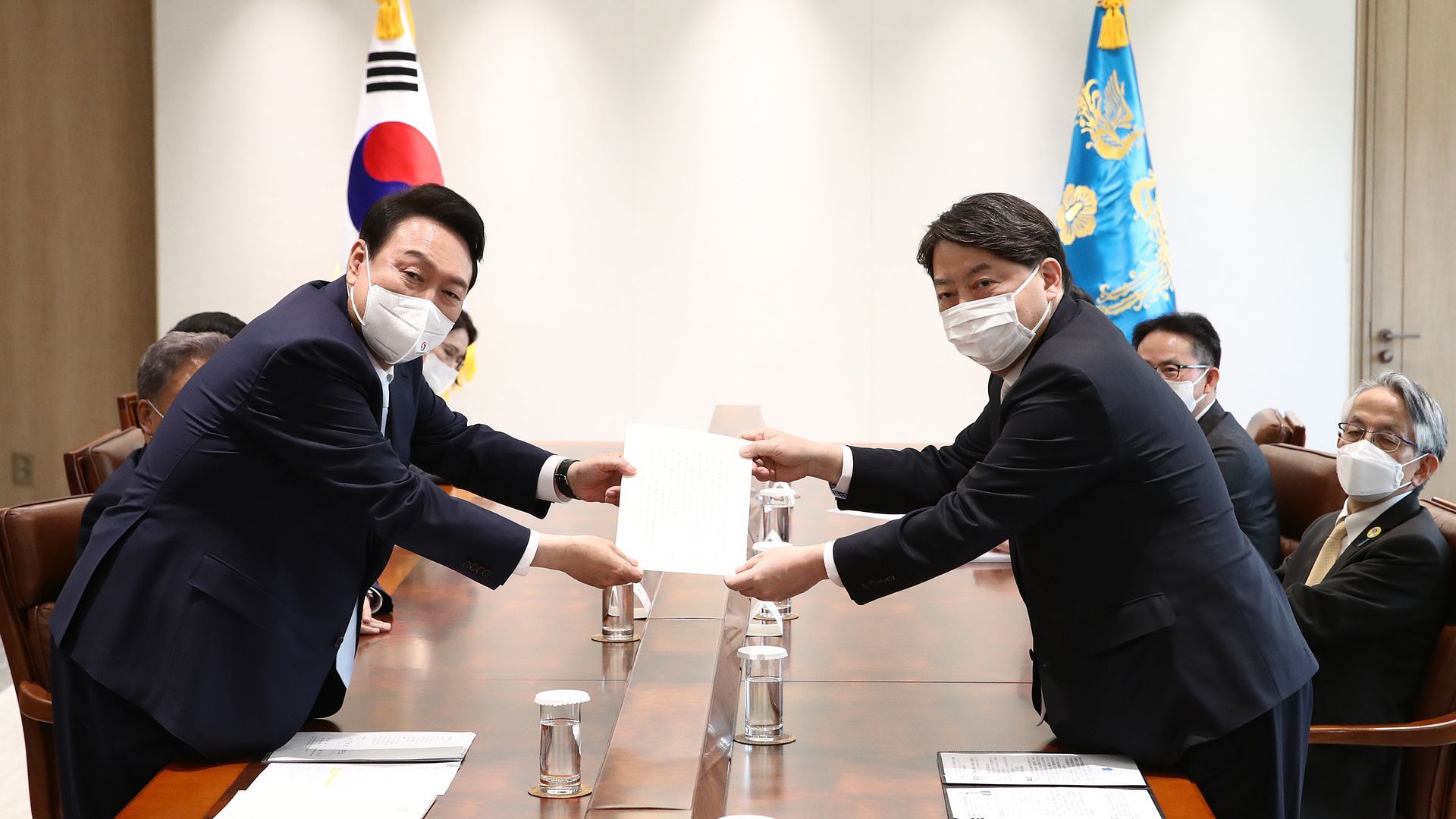Dave Lawler
SEOUL, South Korea — For the first time on record, polls suggest Koreans now feel more unfavorably toward China than they do toward Japan, a fellow U.S. ally and the country's former colonial ruler.
Why it matters: South Korean President Yoon Suk-yeol, who took office just six weeks ago, has sent early signals that he intends to mend relations with Japan and take a more critical approach to China — just what the Biden administration wants to hear. But for historical reasons in Japan's case and trade considerations in China's, both shifts will be difficult to execute.
South Koreans' backlash against China has been driven by Beijing's response to Seoul's deployment of a U.S. missile defense system in 2017 — which included unofficial bans on K-pop acts, TV shows and a variety of products.Yes, but: While China's trade practices and growing geopolitical assertiveness are a source of considerable unease, even Yoon's allies don't think he can afford to pick fights with a regional giant that accounts for one-quarter of South Korea's trade.
That helps explain why Yoon is talking about putting the U.S.-Korea alliance at the core of his foreign policy, while maintaining a relationship of "mutual respect" with China.
Between the lines: Yoon's desire to improve relations with Japan is genuine, "but will go slower than expected because we need a consensus within Korea, not just between Korea and Japan," the foreign policy adviser to Yoon's campaign says.Both of Korea's major parties have used tensions with Japan to their political advantage in the past, notes the lawmaker from the conservative ruling party. Yoon will have to move cautiously to avoid exposing himself to criticism, he says.
Still, prospects of warmer relations seem far more realistic under Yoon and Japanese Prime Minister Fumio Kishida than under their predecessors, Moon Jae-in and Shinzo Abe, whose contentious relationship caused several headaches for Washington.
What to watch: Even if the leaders of America's two East Asian allies see eye to eye, animosity among the general public — inflamed in recent years by rulings about colonial-era sexual slavery and forced labor — remains a potent political force.

No comments:
Post a Comment